Interview with Subhuti: Ambedkar, Buddhism, and the world today
Anoop Kumar, the interviewer, explores with Subhuti the specific difficulties - and opportunities - faced by Buddhism in the world today - in fact in the ‘three worlds’ of the old Buddhist world, the new Buddhist world of the West, and the revived Buddhist world of India.
The interview can be found online at http://blog.insightyv.com/?p=1155
To quote two of their exchanges -
Buddhism being reduced just to a new caste is indeed a great danger and we clearly witness this happening around us. How do we overcome this?
Subhuti: "We must overcome this danger of the marginalisation of Buddhism, referring back to Dr Ambedkar’s thoughts on conversion: Why did he choose Buddha Dhamma? According to him, liberty, equality and fraternity can only be attained when there is a completely different set of ethical attitudes in Indian society. In a caste-based society one does not see another person in terms of duties towards him or her as a human being, but as a member of a particular caste that stands in a particular relation to one’s own caste. Babasaheb says that this is not really ethics at all. Dr Ambedkar’s great insight was that society has to be based on some genuine ethical principles, not the pseudo-ethics of caste duty".
Buddhism is one of the world’s major religious traditions and therefore building linkages with wider Buddhist world was one of the main concerns of Babasaheb Ambedkar. As a practising Buddhist who is deeply involved with Buddhism as defined by Babasaheb, what are your observations on the wider Buddhist world?
Subhuti: "Buddhism generally covers three worlds today: the old Buddhist world, the new Buddhist world of the West, and the revived Buddhist world of India.
"The old Buddhist world of the East is not in good shape. There are signs of revival here and there, but it is severely battered by modernity and is often not impressive today as an example of a living faith, related to the modern situation. There are impressive people and impressive movements, but Buddhism overall is not that impressive in its old heartlands. The example before us at present is, of course, Sri Lankan Buddhism, a significant and leading proportion of whose followers are, frankly speaking, racists and have used Buddhism as a weapon of cultural dominance.
"Then, you have got the new Buddhist world of the West that has emerged from what has been called the ‘Me generation’, which I myself in fact came from – spoilt children of the post-colonial west who have lived with silver spoons in their mouths and face quite different sets of problems from their brothers and sisters elsewhere in the world, problems more of personal meaning and happiness. There is a strong tendency to individualism among western Buddhists and the Dhamma is often interpreted in quite narrow personal terms.
"Then you have got Buddhist India, which I think is a very interesting intersection of the other two. For me, India is the key to the revival of Buddhism worldwide, because here the Buddhist movement is uncompromisingly modern and has a social conscience, as well.
"This happened because Babasaheb, at least from one side, was the child of the European enlightenment, with its critical intellectual tradition, and at the same time he was also the child of the best of Indian culture: of the whole non-brahmanical shramanic traditions, of the Sant traditions represented by such as Kabir and so on, and above all of the Buddha.
"So the movement initiated by him has the intellectually critical approach - if you like, the scientific approach - that is a principal feature of the modern world. Indian Buddhism is modern in this sense; on the other hand it is functioning in a traditional society with intact family structures, which we have lost to a considerable extent in much of the west, and it has a very strong commitment to social transformation.
"In some ways, our Western Buddhist world shares more in common with India than the old Buddhist world of the East, because in our case we also started from a critical perspective. We in the west feel ourselves very much Buddhist, very much part of the Buddhist tradition, but we are not going to accept all aspects of it uncritically, and that is the position you take in India, following Babasaheb.
"However, although there are similarities between Indian Buddhism today and western Buddhism, there are also discontinuities and some of these we should be careful to maintain. I don’t want to see western individualistic attitudes imported into India – although that is already happening, of course".
There's other introductions to Ambedkar and Buddhism in India in the writing of Vishvapani and Lokamitra


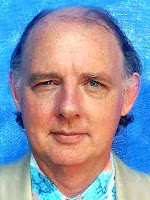
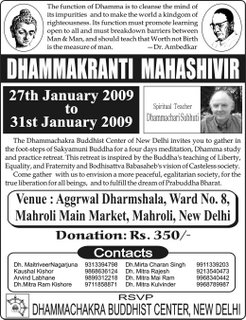
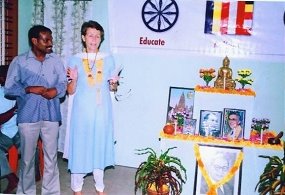
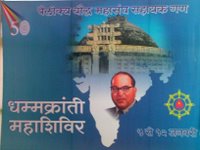
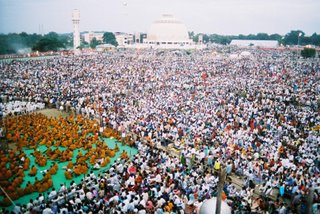
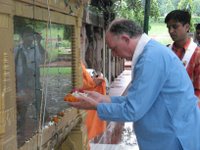 He has also led several retreats, one for Dhammacharis exploring the Manjushri Stuti Sadhana. There was an extremely good atmosphere with lots of silence and meditation, many of the participants said it was the most significant retreat of their lives. In early December we went to Chhattisgarh where we had a general retreat with somewhere between one and two hundred participants. Here Subhuti went through the Tiratna Vandana, people responded well. A particular point of success was taking some of the more experienced students from the Nagarjuna Training Institute and using them as group leaders. This gave them an opportunity to test and develop their skills and meant there was enough of a Sangha present for the new-comers to get a direct experience of Sangha rather than simply having it explained to them. This seemed to be particularly inspiring for the participants, so we hope they will start meeting in small groups and carry the inspiration of the retreat into their lives.
He has also led several retreats, one for Dhammacharis exploring the Manjushri Stuti Sadhana. There was an extremely good atmosphere with lots of silence and meditation, many of the participants said it was the most significant retreat of their lives. In early December we went to Chhattisgarh where we had a general retreat with somewhere between one and two hundred participants. Here Subhuti went through the Tiratna Vandana, people responded well. A particular point of success was taking some of the more experienced students from the Nagarjuna Training Institute and using them as group leaders. This gave them an opportunity to test and develop their skills and meant there was enough of a Sangha present for the new-comers to get a direct experience of Sangha rather than simply having it explained to them. This seemed to be particularly inspiring for the participants, so we hope they will start meeting in small groups and carry the inspiration of the retreat into their lives.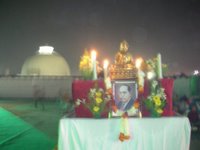
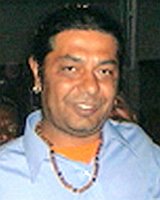
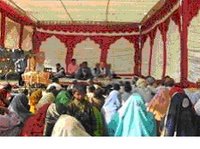
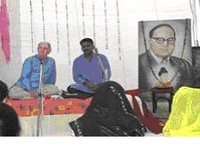
 rss
rss